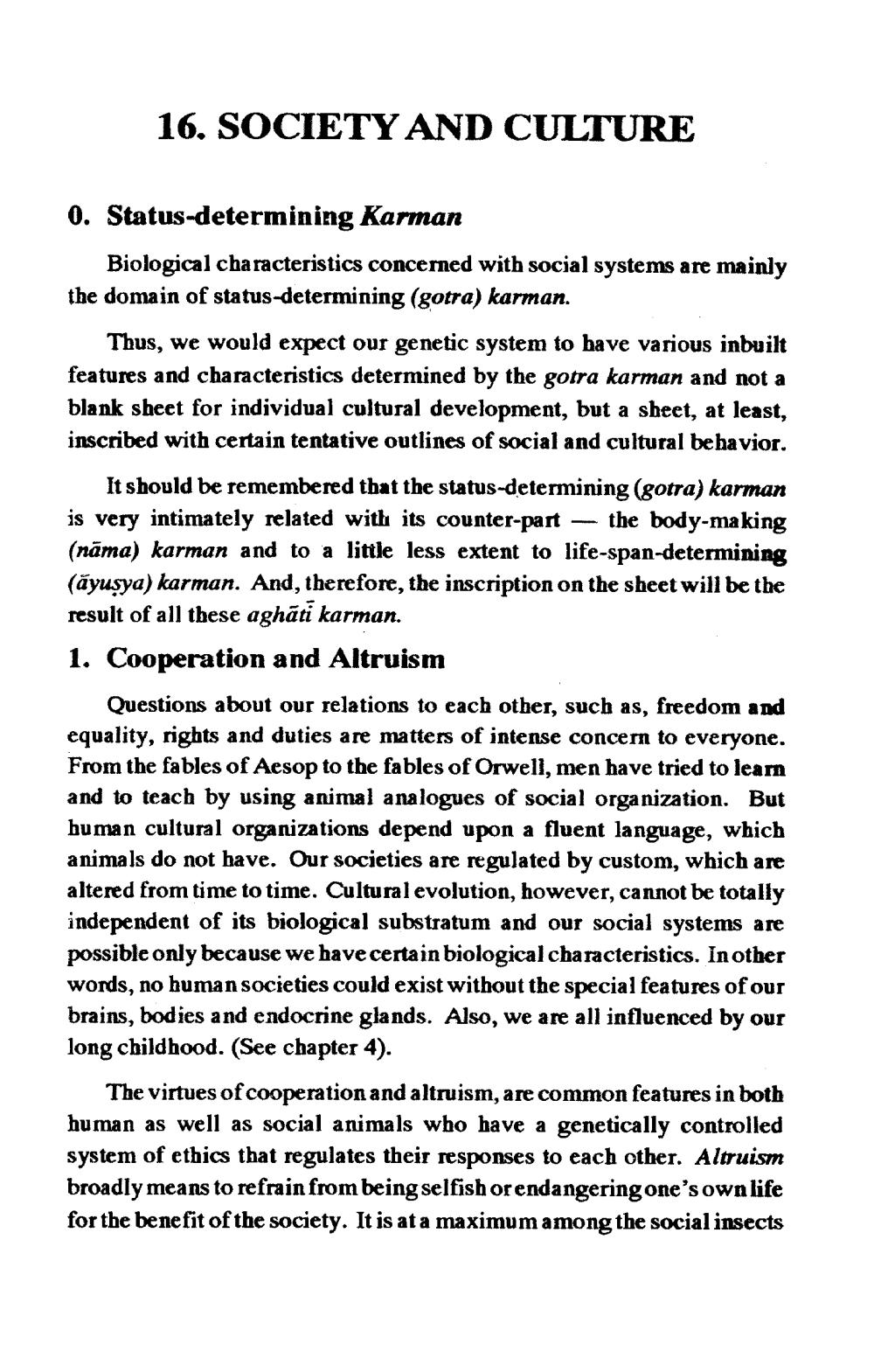________________
16. SOCIETY AND CULTURE
0. Status-determining Karman
Biological characteristics concerned with social systems are mainly the domain of status-determining (gotra) karman.
Thus, we would expect our genetic system to have various inbuilt features and characteristics determined by the gotra karman and not a blank sheet for individual cultural development, but a sheet, at least, inscribed with certain tentative outlines of social and cultural behavior. It should be remembered that the status-determining (gotra) karman is very intimately related with its counter-part the body-making (nāma) karman and to a little less extent to life-span-determining (ayuṣya) karman. And, therefore, the inscription on the sheet will be the result of all these aghāti karman.
1. Cooperation and Altruism
-
Questions about our relations to each other, such as, freedom and equality, rights and duties are matters of intense concern to everyone. From the fables of Aesop to the fables of Orwell, men have tried to learn and to teach by using animal analogues of social organization. But human cultural organizations depend upon a fluent language, which animals do not have. Our societies are regulated by custom, which are altered from time to time. Cultural evolution, however, cannot be totally independent of its biological substratum and our social systems are possible only because we have certain biological characteristics. In other words, no human societies could exist without the special features of our brains, bodies and endocrine glands. Also, we are all influenced by our long childhood. (See chapter 4).
The virtues of cooperation and altruism, are common features in both human as well as social animals who have a genetically controlled system of ethics that regulates their responses to each other. Altruism broadly means to refrain from being selfish or endangering one's own life for the benefit of the society. It is at a maximum among the social insects




